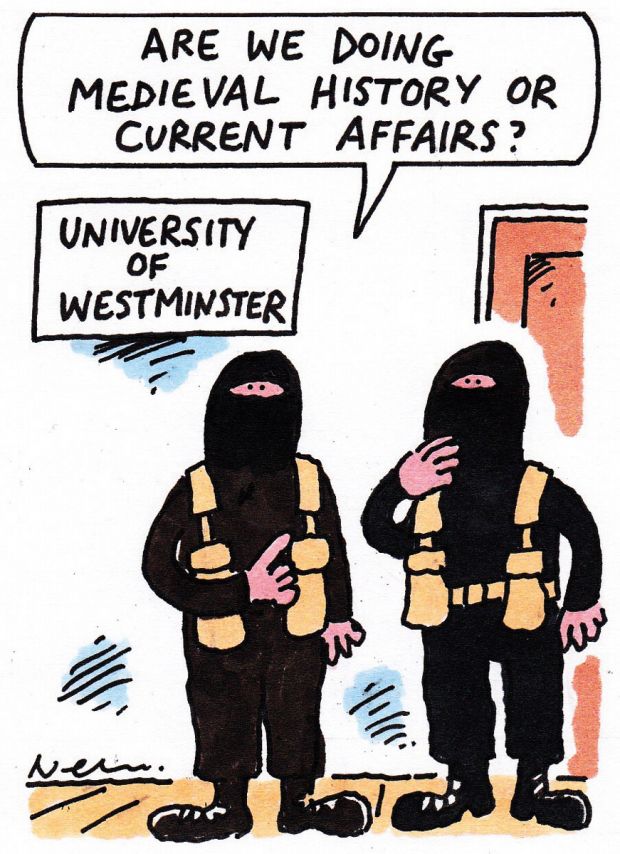
- University lecturers could face tougher quality assessments to address a growing number of undergraduate complaints, The Sunday Times reported on 1 March. The results of the assessments – which will mark down teachers who “fail to pay enough attention to their classes” – will be used to decide how teaching grants are allocated, the paper says. “We want to make sure that students are getting value for money and the quality they deserve,” said a “senior source” close to universities minister Greg Clark, who is apparently considering the plans. Almost no detail about these future assessments was provided, with ministers “still studying…to what extent they might be similar to the Ofsted ratings” used in schools, the newspaper says. Nonetheless, the assessments will “become part of the Conservative party’s election manifesto”, which gives party wonks only a few weeks to put together a policy on quality assurance – probably not what the sector envisaged when it was consulted about the issue last month.
- Princess Beatrice is to take a break from her holidays to study in the US, the Daily Mail reported on 25 February. Beatrice, who has been mocked as “work shy” for embarking on a string of exotic breaks since quitting her post at Sony in December, is apparently set on “jobs in the area of finance”, a royal source said. Of course, she may still be able to go on a few foreign jaunts if she manages her time as well as her cousin Prince William, whose “intensive” 10-week land management course at the University of Cambridge last year appeared to leave plenty of time for extracurricular activities.
- David Willetts’ zeal in promoting universities’ interests while in office did not go down well with his former Cabinet colleagues, The Times reported on 2 March. When the former universities and science minister suggested at a Cabinet committee that foreign student numbers should be doubled rather than reduced, Theresa May was not amused, the paper said. “The home secretary looked horrified, the prime minister sat in silence,” according to the newspaper. Since leaving his ministerial post ahead of stepping down as an MP in May, Mr Willetts has stepped up his criticism of Ms May, whose efforts to restrict foreign student numbers are damaging one of the UK’s strongest export markets, he says. “University education is our second export to China after motor cars,” he said. “It was as if Theresa May was constantly phoning up Jaguar Land Rover and saying stop selling so many cars.”
- University Challenge host Jeremy Paxman has been accused of showing bias towards an Oxford college headed by a former BBC executive, The Guardian reported on 26 February. Paxman awarded points to St Peter’s College, Oxford, despite their not quite giving the right answer. When asked what links Winston Smith’s home in Nineteen Eighty-Four, Nelson’s flagship and 8 May 1945, a contestant replied: “V”. “Yeah, we were looking for the word but you’re quite right that V does link them all, V for victory,” said Paxman. It prompted a viewer to complain but the BBC did not agree that there was bias as Paxman only stressed that he was looking for the whole word after the answer was given. St Peter’s, whose master is former BBC Radio 4 controller Mark Damazer, eventually beat the University of Sussex 205 points to 150 and are still in the competition.
- It hasn’t been a great week for the University of Westminster after the Islamic State executioner known as Jihadi John was revealed to be a former student. “The campus of hate”, roared a Daily Mail headline on 28 February, which claimed the day before that Westminster was a “hotbed for radicals”. Leading the criticism was the group Student Rights, which claims that 22 events involving “speakers with a history of extremist views” had been organised there since 2012. Westminster has cancelled all forthcoming talks of a potentially contentious nature, saying that it is “shocked and sickened” that Mohammed Emwazi was a former student. It said that it was implementing the government’s Prevent strategy to stop extremism, and it had policies to “promote tolerance among our 20,000 student community who come to study from 150 nations”.
Register to continue
Why register?
- Registration is free and only takes a moment
- Once registered, you can read 3 articles a month
- Sign up for our newsletter
Subscribe
Or subscribe for unlimited access to:
- Unlimited access to news, views, insights & reviews
- Digital editions
- Digital access to THE’s university and college rankings analysis
Already registered or a current subscriber? Login
